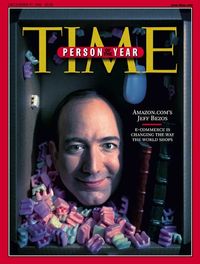Think of this as Volume 17, Number 32 of the newsletter I have written weekly since March, 1997. Enjoy.
 As I've noted before, when I was a
As I've noted before, when I was a
journalism student at Northwestern University, 35 years ago now, I
engaged in debates with my teachers about the coming of the online
world.
They were upset about it. I was
optimistic. I insisted the news business could adapt to a cheaper
means of delivering more product, and the result would be more jobs
for journalists. They insisted the world was coming to an end.
We were both right.
I deliberately sought a career in the
new media, and from the time I joined Newsbytes, in 1985, I looked
for new means through which to get news to people and make a living.
I tried an online newsletter as early as 1989. My Interactive Age
Daily was the first online publication to launch alongside a print
counterpart, in 1994. I treated what became A-Clue.com, from which
this blog post descends, as an online newsletter starting in 1997.
 (That's me, believe it or not, while at Medill. We took in a ballgame at old Comiskey Park, then walked up to Chinatown, a mile away.) And, of course, I covered the Web, even
(That's me, believe it or not, while at Medill. We took in a ballgame at old Comiskey Park, then walked up to Chinatown, a mile away.) And, of course, I covered the Web, even
before it was spun. I wrote about a web pre-cursor, the computer
bulletin board, in a 1991 book. I covered what became tablets in
another book, in 1992. I wasn't an entrepreneur – I'm not organized
enough to run a business, nor am I detailed enough. But I could see
the future and moved as rapidly as I could in its direction.
As it turned out, the problem with
newspapers' transiting to an online medium had nothing to do with my
own prescriptions, nor with anything those in the business now claim.
I said that papers should focus on maintaining their reach within the
places, industries or lifestyles they covered. Newspaper people
claimed that “link bait” sites like the Huffington Post were
stealing their ideas, and their readers.
The answer was simpler, and it should
have been obvious to me as a student. The newspaper industry had
become insular and bureaucratic, pretending to be a “profession”
rather than what it really was, a trade and a business.
 (Ever wonder how Richard Cohen, right, got his job? Here's how.) The only way one rose to prominence as
(Ever wonder how Richard Cohen, right, got his job? Here's how.) The only way one rose to prominence as
a newsman, in 1978, was to play the bureaucratic game. You had to
become a political infighter, cultivating internal allies, and
finding a way to keep rivals from gaining a toehold. This meant that
a good reporter without political skills, turned ever-inward toward
protecting his or her bureaucratic rear, was bound to get shit-canned
in favor of mediocrities who knew how to play the internal game.
The result was rot, a steady brain
drain that left the industry focused only on its own comforts, rather
than the desires of readers or the needs of advertisers.
The worst thing the newspaper industry
did was to put people who loved the newsroom in charge of the
business. This was Donald Graham's fatal flaw. He cared more for his
employees than he did for his business. Everyone talks about how he
loved the newsroom, about how he came up through the ranks as a
reporter, from the editorial side. No one realized that, in a time of
rapid change, this insular approach was completely wrong.
Publishers don't share the ethics of
journalists. They have business ethics, which is they get away with
whatever they can. Theirs are the names on the great journalism
schools – Pulitzer, Medill, Annenberg. They're businessmen. They
seek market niches and exploit them ruthlessly. As Mario Batali said
in “The New Yorker” years ago, “our job is to sell food for
more than we pay for it.”
 This is true of online journalism as
This is true of online journalism as
well. Jim Cramer, who founded TheStreet.Com in the last century –
an eon away in Internet time – told a friend once that his best
move was to walk away from the company's management, hiring Elizabeth
DeMarse to turn his company around. This left him free to do what he did
best, entertain the people online and on TV. I wish I'd had a Liz
DeMarse.
Cramer, like Graham, was spending too much time working in his business, not enough on his business. Cramer had the wisdom to realize this and do something about it.
It's DeMarse who will get her name on
the journalism schools of the future, not Cramer. But in all the
boo-hooing over the fate of Graham's Washington Post, which was
finally sold (for more than it was worth) to someone who actually
knows something about business, the chattering classes refuse to
consider that they may be the problem, not the solution.
 Now, with newspapers selling for
Now, with newspapers selling for
pennies on the dollar, but being sold at last to people outside the
industry, we'll get to see what's what and who's who in local
journalism again.
The fact is we now have working
business models for online journalism. Let me repeat that – we have
working business models for online journalism. We even have an
editorial career path.
You start by picking your beat,
studying it closely, and blogging about it. On your own. It's free.
You don't get a job anymore by beating down editors' doors. You get
it the way I did, by doing the work. I did a magazine story in
Houston in 1978 that my editors' boss showed him after my third
attempt to gain a foothold on the staff, telling the editor “see if
you can hire this guy.” (The editor told me later he hid my resume
under a stack of papers, nodded sagely, and said he'd see what he
could do.)
The job equivalent of hanging out at
the police station or courthouse is to do “link bait” stories.
That's how you get your writing chops, it's how you get up your
typing speed, it's how you learn to think on your feet, and these are
the skills that count in this new medium. Some of those skills come
from TV, especially the ability to improvise, and some come from the
whole business of writing for a living. Others – the ability and
willingness to use others' work as fodder for your own – are
generic to this medium.
 Once your reputation is established in
Once your reputation is established in
this way, a budding online journalist has to learn to use social
tools to publicize work, avoiding flame wars and building their own
reputation, not just that of the employer. It's only after this is
accomplished that you'll get the time and space to pursue long-form
stories. These do sell, they sell well, but they're not the whole
online paper, anywhere, and never have been. It's only after proving
yourself on features, not just as a reporter who can husband time by
leaving the office only after the Web has failed, but as a
storyteller, that you should get a shot at stardom.
In the absence of people who've come up
through the ranks in this way, we're settling on in-house “experts”
for entertainment, people who've been part of the beat. Whether it's
sports stars on ESPN, or investment bankers on CNBC, or politicians
on CNN, today's talking heads and digirati are only stand-ins for the
kind of people we need in the future. You can become that person by
devoting yourself to your personal brand, to your own beat, and to
learning the skills you need, one by one, to take over from these
asshats.
Publishers, by contrast, focus on other
things. They don't care about the newsroom, and they only
 care about
care about
the product insofar as it hits the target, winning share and loyalty
within the place, industry or lifestyle they serve. And that is the
job – serving the industry, the lifestyle, or the place where the
publication lives. Never forget that. Intrinsic targeting, targeting
ads based on algorithms using data about readers, hasn't worked and
won't work. Extrinsic targeting, targeting ads based on the place,
industry or lifestyle the site in question is covering, and that the
reader is caring about at the moment they're reading, is still what
counts, even in the 21st century.
Your job, as a publisher, remains what
it was in the 19th century. Define a market, aggregate
both the buyers and sellers, and stimulate financial transactions
between them. Publishing is a market-making proposition, and those
who create the best marketplaces win. Every time.
These are still the early innings of
the online publishing game. The collapse of newspapers is a gift from
above, not a plague. It opens up vast new opportunities for people
who have learned their business, publishers and editors both.
I wish I were 35 years younger.









